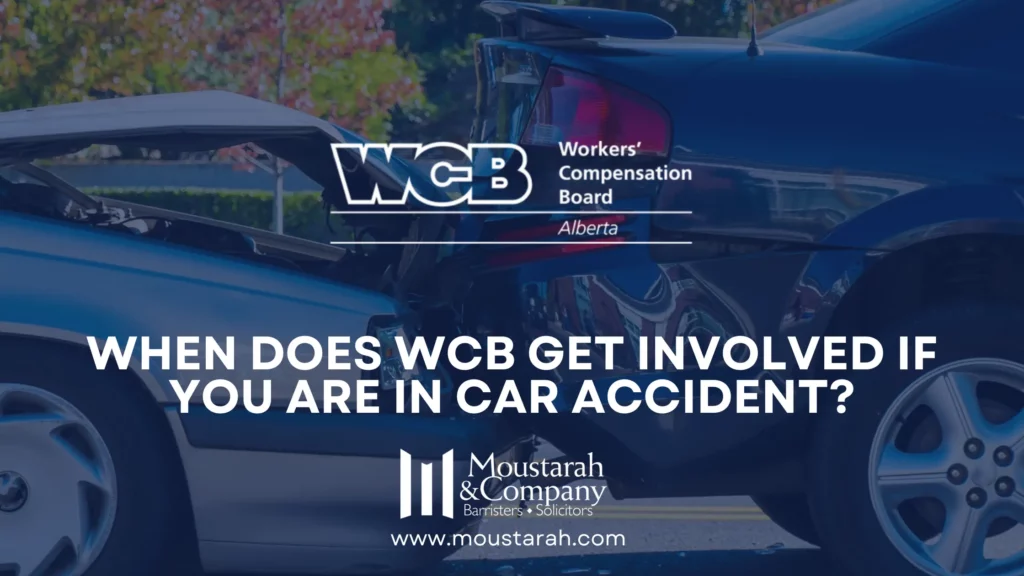
If you are injured in a motor vehicle accident during your workday, you may be compensated through the Workers’ Compensation Board (“WCB”) or through a personal injury claim. It can be difficult to determine how to proceed and which process applies. This blog post will outline the different claims processes and how to determine which process applies to your situation.
What is WCB?
The Workers’ Compensation Board of Alberta (WCB) is a program created by the government to protect workers when they are injured in the workplace. WCB is responsible for providing compensation to workers who suffer work-related injuries and illnesses. They work with your employer to help you recover from a work-related injury.
Who is Covered Under WCB?
WCB coverage is mandatory for most workers and industries in Alberta. However, certain industries are exempt from mandatory WCB coverage. WCB will cover you regardless of your age and whether you are a full time, part time, temporary or casual worker.
Examples of industries who require mandatory WCB coverage include:
- taxi cabs
- limousine services
- uber services
- trucking services
- construction
- manufacturing, processing and packaging businesses
- railway transportation
If you are unsure whether you are covered by WCB, ask your employer or contact WCB directly (https://www.wcb.ab.ca).
When does WCB apply?
WCB is responsible for work-related injuries that arise out of and occur during the course of employment. Accidents that occur during travel may also be subject to WCB coverage.
To determine whether workers are covered while travelling, WCB will consider the following factors:
- the purpose of the travel
- if travel is part of the job requirement
- if the travel is under the direction and control of the employer
- if the travel is consistent with the employment obligations
Workers are typically not covered during routine travel to and from work. As a result, if you are injured in a motor vehicle accident on your way to or from work, you will likely not be covered under WCB. Workers are also not covered for personal travel during the workday or travelling for non-work related activities.
Workers must be in the course of employment and fulfilling work duties in order for WCB to apply. For example, truck drivers, who travel regularly as part of their job requirements, are covered under WCB for accidents that occur in the course of their travel.
If your accident falls under WCB, you cannot sue your employer for your injuries. Instead, WCB will step in and compensate you for your work-related injury. The compensation will depend on the severity of your injury and whether you are required to take time off from work to recover.
What Are My Options if WCB Denies My Claim?
If you are covered under WCB and your injury is work-related, you must proceed with a claim through WCB in order to be compensated. Civil claims will likely be statute-barred if WCB is already responsible for compensating your work-related injury.
However, in the event that WCB denies your claim and finds your injury did not arise out of the course of employment, you still have a second course of action available. You can seek compensation for your injuries through a personal injury claim. In a personal injury claim, the at-fault party is sued for their wrongdoing and for damages that arise as a result of that wrongdoing. It is still possible to be compensated for your injuries, missed work and other losses from the accident. Learn how to navigate workplace injuries, and WCB, and how a lawyer can help.
How Can the lawyers at MOUSTARAH and COMPANY help?
If you were injured during the workday and are unsure how to proceed, a personal injury lawyer can help you navigate the process and point you in the right direction. The experienced personal injury lawyers at Moustarah & Company will guide you through the process step by step and ensure you are fairly compensated for all of your injuries.

